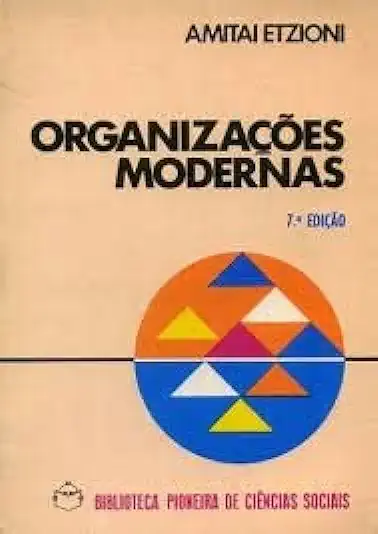
Modern Organizations - Amitai Etzioni
Modern Organizations: A Comparative Analysis of Complex Organizations
In his seminal work, "Modern Organizations," Amitai Etzioni presents a comprehensive and insightful analysis of complex organizations, offering a framework for understanding their structures, processes, and dynamics. Etzioni's book is a must-read for anyone interested in organizational theory, management, and the study of human behavior within organizational contexts.
Key Themes and Concepts
Etzioni's analysis revolves around several key themes and concepts that provide a deeper understanding of modern organizations. These include:
Types of Organizations: Etzioni identifies three main types of organizations: coercive organizations (e.g., prisons, military), utilitarian organizations (e.g., businesses, hospitals), and normative organizations (e.g., churches, universities). Each type is characterized by its unique goals, power structures, and mechanisms of control.
Power and Authority: Etzioni explores the role of power and authority in shaping organizational behavior. He argues that power is the ability to influence others, while authority is the legitimate use of power. Etzioni analyzes the different sources of power and authority within organizations, including formal positions, expertise, and personal charisma.
Organizational Structure: Etzioni examines the various structural elements of organizations, such as hierarchy, specialization, and coordination mechanisms. He discusses how these elements contribute to organizational efficiency and effectiveness, while also recognizing the potential challenges and dysfunctions that can arise.
Organizational Culture: Etzioni emphasizes the importance of organizational culture in shaping employee behavior and organizational performance. He defines organizational culture as the shared values, beliefs, and norms that guide the actions of organizational members. Etzioni explores how culture is transmitted and reinforced within organizations, and how it can be managed to enhance organizational effectiveness.
Organizational Change: Etzioni concludes his analysis by discussing the challenges and opportunities of organizational change. He argues that organizations must adapt to changing environments to survive and thrive. Etzioni provides insights into the processes of organizational change, including the role of leadership, communication, and resistance to change.
Why Read Modern Organizations?
"Modern Organizations" is a seminal work that has profoundly influenced the field of organizational studies. Etzioni's comprehensive analysis provides a deep understanding of the complex dynamics of organizations, offering valuable insights for scholars, practitioners, and anyone interested in human behavior within organizational contexts.
Here are a few reasons why you should read "Modern Organizations":
Comprehensive Coverage: Etzioni's book covers a wide range of topics related to organizations, from their structures and processes to their cultures and dynamics. This comprehensive coverage makes it an essential resource for anyone seeking a thorough understanding of modern organizations.
Theoretical Depth: Etzioni draws on a variety of theoretical perspectives to provide a nuanced analysis of organizations. He integrates insights from sociology, psychology, economics, and political science to develop a comprehensive framework for understanding organizational behavior.
Practical Relevance: Etzioni's analysis is not only theoretically rigorous but also highly relevant to the real world of organizations. He provides practical insights and recommendations for managers and leaders seeking to improve organizational performance and effectiveness.
Engaging Writing Style: Etzioni's writing style is clear, engaging, and accessible. He presents complex concepts in a straightforward manner, making the book accessible to readers from a variety of backgrounds.
Conclusion
"Modern Organizations" is a must-read for anyone interested in understanding the complex world of organizations. Etzioni's comprehensive analysis provides a wealth of insights into the structures, processes, and dynamics of organizations, making it an essential resource for scholars, practitioners, and anyone seeking to deepen their understanding of human behavior within organizational contexts.
Enjoyed the summary? Discover all the details and take your reading to the next level — [click here to view the book on Amazon!]